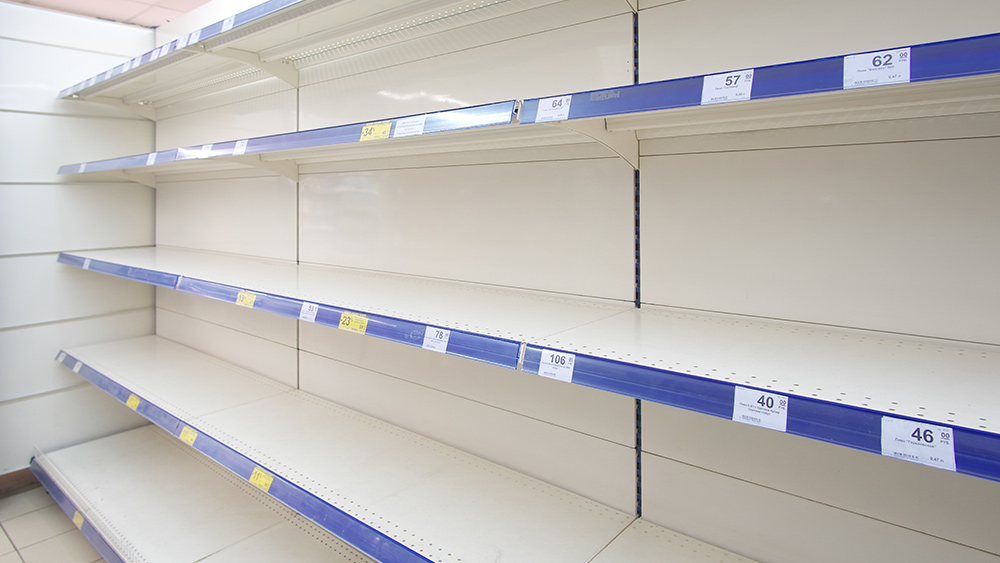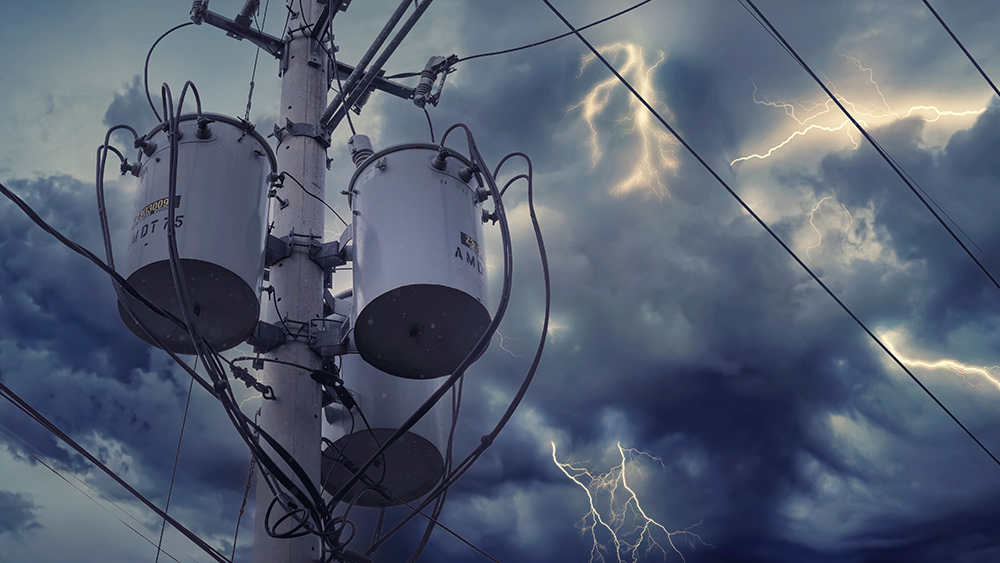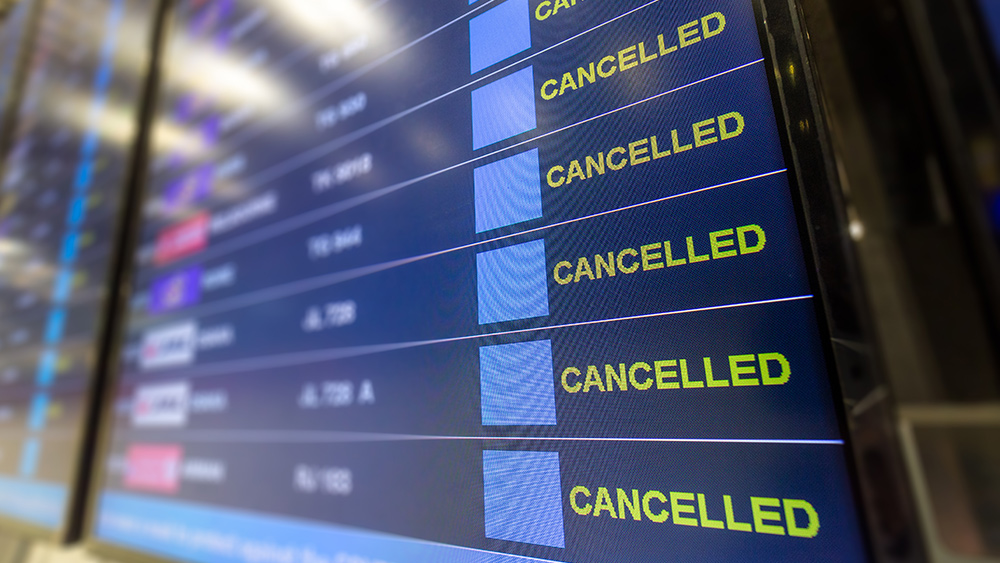European groceries seeing empty shelves due to worsening food shortages
03/09/2023 / By Ramon Tomey

Many supermarkets in Europe are seeing empty shelves, most especially for produce, thanks to food shortages in areas where these are procured.
A March 8 article on Strange Sounds cited three locations that had their food production impacted – the Netherlands, Morocco and Spain’s southern Almeria region.
Quoting a piece from the German Der Spiegel magazine, the Strange Sounds article noted that major greenhouses in the Netherlands experienced a complete crop failure because of the high energy prices – to the point that heating them would not have been worthwhile. It also pointed out that “the Dutch greenhouse miracle has a weak point: It eats enormous amounts of energy, above all gas.”
“Almost nine percent of all national natural gas consumption goes into greenhouses.”
Citing the Dutch greenhouse growers association Glastuinbouw Nederland, a March 6 report by Bloomberg stated that soaring energy costs forced tomato growers cultivating plants under lamps to turn off more than 90 percent of them last winter. This dented production and forced British supermarkets to impose purchase limits on tomatoes and other vegetables. (Related: UK rationing produce as country grapples with severe shortage of tomatoes and other vegetables.)
The same Der Spiegel article talked about a greenhouse grower that switched to geothermal energy and shelled out €10 million ($10.6 million) for the shift. While farmers initially mocked the decision, it paid off for the grower.
Now, the greenhouse grower sells excess heat to its neighboring greenhouses. “We turned from energy consumers to energy producers when we have more heat than we need,” it said.
Weather affects tomato harvests
Aside from high energy costs, the weather also played a role in food shortages.
In the case of the southern Spanish province of Almeria, extreme weather dented the region’s food production. Eurofruit magazine attributed the shortages to “high temperatures in the autumn and early winter, followed by a persistent cold spell.”
Coexphal – the association of fruit and vegetable growers in Almeria – pointed out that the volume of tomatoes sold between the fifth and seventh weeks of 2023 was 22 percent lower than during the same period in 2022. Similar reductions were seen in other vegetables such as cucumbers (down 21 percent), peppers (down 25 percent), eggplants (down 25 percent) and zucchini (down 15 percent).
The association described the situation as “concerning,” and mentioned some companies reporting problems in meeting their customers’ requirements.
“Our companies are doing the impossible to fulfill all their commitments, but it is practically unfeasible given the circumstances,” lamented Coexphal CEO Luis Miguel Fernandez.
The Strange Sounds piece also mentioned the issues faced by Morocco – such as flooding, cold temperatures and canceled ferries – that had serious repercussions on the European food supply. It quoted a Fresh Produce Journal (FPJ) article that expounded on these three problems faced by Moroccan growers.
Moreover, the FPJ piece said Moroccan producers tackled the emergence of the tomato brown rugose fruit virus (ToBRV). According to Michigan State University‘s College of Agriculture and National Resources, the pathogen first appeared in Israel in 2014. The university added: “ToBRV is present in countries exporting tomato and pepper fruit to the United States.”
Rabat has stepped in to address the tomato harvest issues caused by unstable weather by supporting investment in tomato production in the city of Dakhla in the disputed Western Sahara territory. Compared to the coastal city of Agadir in Morocco, temperatures in Dakhla are more regular and reliable – particularly in January and February.
Visit FoodCollapse.com for more stories about food shortages in various countries.
Watch Neil McCoy-Ward warn viewers that the food crisis in the United Kingdom has already begun.
This video is from the Pool Pharmacy channel on Brighteon.com.
More related stories:
Tomato shortage looms as drought threatens California’s summer crops.
Food prices soar as abnormal rains, floods in Australia wipe out more crops.
As fears of food rationing grow, UK gov’t tells Britons to turn to seasonal veggies.
Grocery rationing begins in UK as a means of ‘normalizing’ coming shortages ahead of collapse.
Two UK supermarkets now limiting customers’ egg purchases due to food industry supply chain issues.
Sources include:
Submit a correction >>
Tagged Under:
agriculture, Almeira, Collapse, crop collapse, crops, food collapse, food scarcity, food shortages, food supply, grocery, harvest, hunger, Morocco, Netherlands, organics, products, rationing, Spain, starvation, veggie
This article may contain statements that reflect the opinion of the author
RECENT NEWS & ARTICLES
COPYRIGHT © 2017 POWER NEWS




















